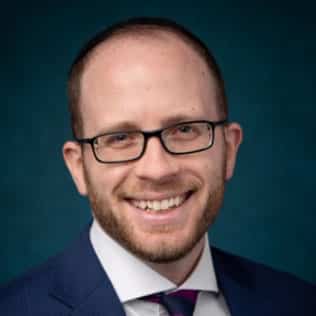
As governors, mayors, and the president grapple with the decision on how and when to relax social distancing measures in the coming weeks or months, the Bible offers us a precious bit of advice: Better call Saul.
The Bible’s first king was the first leader in recorded history whose people enacted a shelter-in-place policy, as their leader struggled to balance mounting public pressure against an immeasurable enemy. And Saul’s mishandling of the moment can teach contemporary leaders a few priceless lessons.
The story, as told in the book of Samuel chapter 13, is grim: Around 1050 BCE, the Philistines were on the attack, overwhelming the Israelites with battalions “as numerous as the sand which was on the sea shore.” Running their own version of a diagnostic model, Saul’s subjects determined that facing their foes will lead to too many dead. Instead, they sought to flatten the curve. By hiding.
“The people were distressed,” the Bible tells us, “they hid themselves in caves, and in thickets, and in rocks, and in holds, and in pits.”
The tactic worked for a little bit. Then the Israelites started getting anxious. Some began fleeing abroad, across the Jordan River. They pressured their king to make some decision, or at least tell them when it might be safe to come out of their self-imposed quarantine. Being the nation’s first-ever king after a long line of unruly local chieftains, Saul felt the pressure mounting. He wanted to assure the people that God was on their side, and turned to the prophet Samuel for help the way a modern president might consult the head of the NIAID or CDC, say. But Samuel, we’re told, “tarried seven days” without signaling that it was time to take swift, decisive action. The people, watching closely, groaned louder.
Finally, Saul cracked. He couldn’t wait on the experts any longer. He offered sacrifice to God before his holy adviser, Samuel, gave him the green light. The prophet didn’t take it all too well. “What have you done?!” he shouted at Saul.
Though victory over the Philistines was eventually achieved, it was a pyrrhic one, occurring despite Saul’s efforts, not because of them. Saul was stripped of his crown, soon to be replaced by David. It was the young redheaded shepherd, not the tragic first king, who would father the dynasty that would forever rule the kingdom of Israel, as well as produce a certain Nazarene who would also go on to make quite a name for himself.
Now, science isn’t prophecy, and Dr. Anthony Fauci and Dr. Robert Redfield are surely no prophets, but Saul’s fall offers three hard kernels of wisdom for our contemporary decisionmakers. The first is this: Let us not step outside our lanes. Spawning a system that millennia later inspired America’s own Founding Fathers, God commanded an earlier leader of the Israelites, Moses, to establish a form of government in which political leaders would not assume the duties of priests or prophets. Heaven and earth, went the idea, both benefited when kept separate, each a realm onto itself. Saul betrayed this basic idea, and took on the role of the man of God, bringing the sacrifice before Samuel arrived to execute his duties. It’s no wonder that, in the end, Saul and Samuel’s relationship sundered, the once proud leader left breaking bad and desperately consulting a diviner of bones for advice.
Which leads us to the second lesson we should learn from Saul’s downfall: Never bet on the wisdom of crowds, no matter how loudly they huff and hashtag. A wiser leader would’ve realized the folly of asking his constituents for anything approximating advice, and would’ve understood, also, that people tend not to make the best judgment calls when their psyches are battered and their resources stretched. David, again, realized this all too well: When he marched into battle against the giant Goliath, his soon-to-be subjects laughed and predicted that his downfall was imminent. David tuned them all out and quieted the doubters with his slingshot. He triumphed because he realized that, sometimes, the greatest skill a leader can have is knowing when not to listen.
Finally, there’s one more failing of Saul’s that merits our attention. First rate minds, as a wise man once said, can hold two contradictory ideas simultaneously and still retain the ability to function. Our greatest leaders, in the Bible and beyond, powered through self-doubt, anxiety, even abject terror, and still made good decisions, communicating their thought process clearly to both counselors and constituents. Saul never did. He saw hesitation as a sign of weakness, and rushed to deliver something that looked like decisive action. He blew it, as will anyone who follows in his footsteps.
Saul is long dead, but the drama of his life is still unfolding before us. Let us hope that the men and women running the battle this time deliver far better outcomes than the ill-fated king ever did.





















 More news and opinions than at a Shabbat dinner, right in your inbox.
More news and opinions than at a Shabbat dinner, right in your inbox.